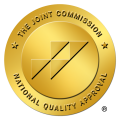Using Cognitive Appraisals in Addiction Treatment
Cognitive appraisals impact how and why you make decisions. Find out how to take control of your mental state and combat cravings.
What Is a Cognitive Appraisal?
The appraisal theory of stress refers to an individual’s perception of external challenges, how to tackle the challenges, and whether the challenge is considered stressful. For example, a person on the way to work views red lights and heavy traffic as stress-inducing setbacks. This viewpoint is due to evaluation, or in this case, appraisal, of the red lights as hindering.
From a rehabilitation standpoint, the theory of cognitive appraisal helps a client be more aware of their emotional state and how it affects the outcomes of specific events.1
History of Cognitive Appraisals
Cognitive appraisal theory was originally pioneered by psychologist Richard Lazurus. Lazarus theorized that stress was almost entirely based on individual perception as a balance between a setback and the personal ability to overcome the setback.
For example, the fine for a speeding ticket will likely cause elevated stress levels in poorer individuals versus wealthier ones. Furthermore, Lazarus focuses on the logical, cognitive steps we take to decide if an event is or isn’t stressful.2
Defining Cognitive Appraisals
Cognitive appraisal theory can be broken into the following two stages.
Two-Step Appraisal
All cognitive appraisals occur as a reaction to an event or idea that could be challenging. The first step is the primary appraisal.
- Primary Appraisal: In the primary appraisal, a person asks themselves a variation of the following, “Is this challenge a threat to me or to things I hold dear.”
- Secondary Appraisal: If the answer to the primary appraisal is yes, then the following question falls along the lines of, “do I have the resources or capability to overcome this challenge?” The reaction to the secondary stage is based on individuals’ resources and coping mechanisms. In terms of drug recovery, coping mechanisms are crucial to reducing the chance of relapses and improving quality of life.
Both stages in the theory of cognitive appraisal happen within moments of each other. Further time to think about the challenge may result in reduced stress due to more avenues or resources of success becoming available. Some events may occur too quickly for a person to make an appraisal, for example, a sudden impact collision or natural occurrence.3
Events that happen too quickly for an appraisal can often result in stress when a person remembers them, which is called harm-loss. Harm-loss also applies to future events that feel unavoidable. For example, living with a life-threatening disease or genetic disposition to substances can cause a person to worry intensely about the future despite the actual stressful event not occurring.3
Cognitive Appraisals in Therapy

The cognitive appraisal theory of stress plays a big part in therapy for substance recovery. Many of the core concepts of most therapy involve making a person aware of their actions or shortcomings to some degree. Cognitive appraisals can bring to light negative patterns and ways of thinking while also allowing the client to react differently in the future.
Types of Cognitive Therapy
Cognitive therapy is a broad term encompassing all therapy, essentially wherein the end goal is to make patients aware of themselves, feelings, thoughts, and quality of life. For example, providing healthy coping mechanisms to stress can help resolve a patient’s undesired habits. Here are the most common types:
- Rational Emotive Behavioral Therapy: REBT focuses on dealing with irrational thoughts and beliefs.4
- Cognitive Processing Therapy: CPT helps people overcome trauma and control their trigger reactions.
- Dialectical Behavior Therapy: DBT assists with reducing the symptoms of mental illness.4
CBT, like any therapy, works overtime. Ensuring you’re committed to yourself, your therapist, and the process is essential. Often, a therapist will prescribe homework to prepare you for the next session. Doing the homework is a great way to help yourself overcome addiction.
What Cognitive Appraisals Do in Therapy?
Cognitive appraisal and the choices made after appraisals occur dozens of times a day. Cognitive therapy helps a patient make better long-term decisions, lowers stress levels, and reduces the chance of relapse.
It’s worth mentioning that stress can result in an increased likelihood of depression, drug use, poor sleep, etc. Plus, in family therapy, cognitive appraisals can help family members prepare for the patient’s recovery by understanding the challenges and resources that come with sobriety.
Cognitive Appraisals for Addiction Treatment
Cognitive appraisals help combat active addiction and provide a base for recovery. The appraisal plays a factor in how the patient views themselves, others, and past drug use. Ensuring the patient understands the ramifications of their drug use and prioritizes the ramifications over further drug use is essential. If a patient is not aware of their emotional state and the consequences of drug use, then the likelihood they will relapse after rehab is increased.
Other Types of Addiction Treatment
Medication-Assisted Treatment
Medication-assisted treatment can help with withdrawal symptoms and subdue drug cravings. Medication-assisted treatment occurs most commonly in inpatient rehabilitation.
Inpatient Care
Inpatient treatment allows a patient to receive round-the-clock care for their dependency and related health complications. Inpatient care can be tailored for high-profile clients, business executives, and more. Inpatient care is a great place to develop a support group and healthy hobbies. It also gives a patient a break from their stressful environment and potentially harmful triggers.Outpatient Care
Outpatient care makes way for a patient to transition into recovery without disrupting their daily life. A patient can still see their family, attend work, etc., all while receiving the help they need.Holistic Treatment
Holistic treatments view the body, mind, and spirit as one system and work towards improving all aspects of life. Holistic treatment is an option for any client who may be suffering from multiple illnesses for which there is not a singular solution.
Support Groups
Support groups allow a person to speak freely and without judgment about their past substance dependency. Support groups can help raise a person’s confidence and allows them to engage with a community of like-minded individuals working towards recovery. Recovery is a life-long process, but it can be easier with a support group.5




